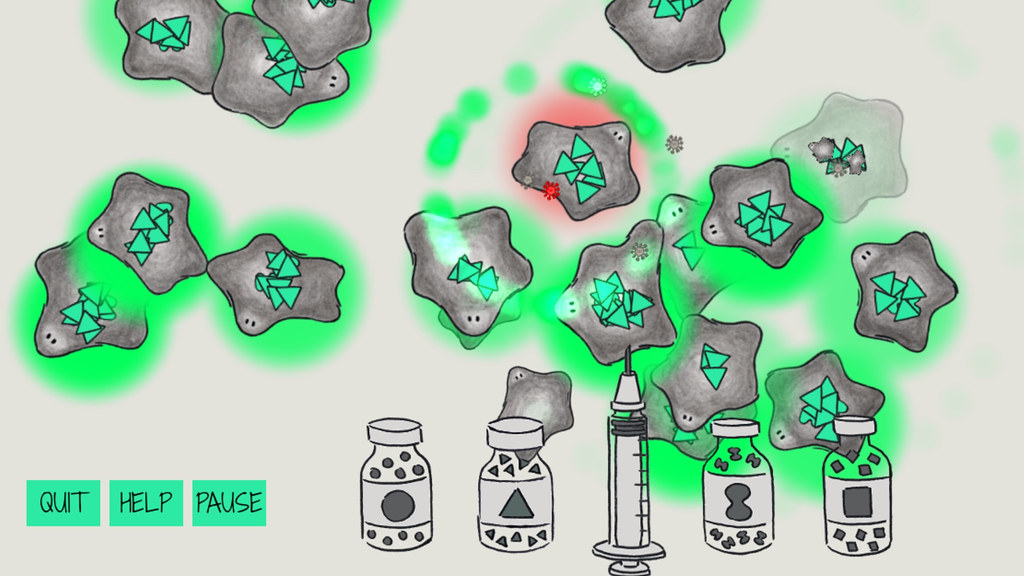An online game that teaches how viruses can evolve to evade vaccine-induced immunity has been released by non-profit organisation Then Try This in collaboration with evolutionary biologist Dr Ben Ashby.
Vaxcraft is a free, online game where players vaccinate blobby creatures in a game world to gain protection from new virus variants. There's also a physical version of the game, with a robotic virus that evolves automatically.
The dynamics of the open-source game are based on reality, with shapes on the surface of the virus (representing antigens – the part of a virus that triggers an immune response in the host) changing as the virus mutates. Game creatures need to be vaccinated to acquire antibodies that match an antigen. Armed with these antibodies, they can recognise and neutralise the virus.
To win, players must keep a close eye on the virus to catch when it mutates, and then react quickly with the right vaccine. This mimics the activities of scientists tackling a virus in real life.
Dr Ashby says, “We wanted to communicate that vaccines are our best line of defence against viruses, but that we must remain vigilant by keeping a close eye on how viruses mutate and how immunity in the population changes over time.”
Dr Ashby, who is a visiting associate professor at the University of Bath, and recently joined Simon Fraser University in Canada, said the game’s key message is that while viruses can evade immunity through evolution, we can limit the virus’ progress through high vaccination uptake.
“The more virus there is in the population, the faster it can evolve because there are more opportunities for it to mutate,” explains Dr Ashby. “It’s therefore usually best to vaccinate everyone we can, as this has the dual benefit of protecting more of the population from infection and reducing opportunities for the virus to mutate.”
Vaxcraft can be played by anyone, but it was conceived with school children in mind. “This game is about getting people, especially children, to ask the right kinds of questions about how viruses evolve and how this relates to vaccines,” says Dr Ashby. “It would be a great resource for a teacher who wants to do a lesson on viruses, and I’d be happy to talk to them about how to build a lesson around the game.”
Dr Amber Griffiths, co-director of Then Try This, says, “This was a complicated project to work on during an actual pandemic. People's familiarity with the topic changed a huge amount over the time we were working on the game, and so did everyone's emotional responses to the content. We've tried to be sensitive with the game, to help people understand the dynamics of virus evolution and vaccination, while hopefully having a bit of fun despite it being such a serious topic.”
School teachers looking for Vaxcraft-related lesson ideas can contact Dr Ashby: bashby@sfu.ca

